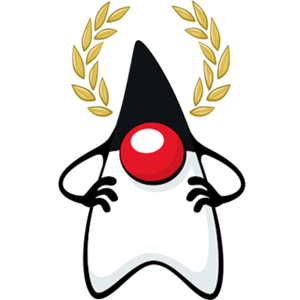How to be a good software developer
Published:
 There are numerous qualities and skills that are essential for success in a software engineering career. Here are a few key things that you can do to become a good software engineer. Firstly, having strong programming and technology skills is very important , as is staying up-to-date on the latest trends and emerging technologies in the field. Additionally, being able to work collaboratively in a team setting, communicating effectively, and having strong problem-solving abilities are all important traits for a software engineer to possess. Other important qualities include attention to detail, critical thinking, and a willingness to constantly learn and grow. A good software engineer should be curious and inquisitive, eager to explore new approaches and innovations in the ever-evolving field of software development.
There are numerous qualities and skills that are essential for success in a software engineering career. Here are a few key things that you can do to become a good software engineer. Firstly, having strong programming and technology skills is very important , as is staying up-to-date on the latest trends and emerging technologies in the field. Additionally, being able to work collaboratively in a team setting, communicating effectively, and having strong problem-solving abilities are all important traits for a software engineer to possess. Other important qualities include attention to detail, critical thinking, and a willingness to constantly learn and grow. A good software engineer should be curious and inquisitive, eager to explore new approaches and innovations in the ever-evolving field of software development.
Learn continuously: Technology is constantly changing, and it is important for software engineers to stay up-to-date with the latest developments and best practices in their field. This can involve taking online courses, attending conferences, reading industry blogs and publications, and staying engaged with your professional community.
Practice good coding habits: As a software engineer, you will be responsible for writing code that is efficient, maintainable, and easy to understand. This requires a strong foundation in coding principles and best practices, as well as the ability to write clean, well-organized code.
Collaborate effectively: Software engineering is often a team-based activity, and it is important to be able to work effectively with others. This involves good communication skills, the ability to listen and understand the perspectives of others, and the ability to contribute to a positive team dynamic.
Think critically and solve problems: A key part of a software engineer’s job is to identify and solve problems, whether they are technical challenges or business-related issues. This requires the ability to think critically and creatively, and to approach problems with a logical and analytical mindset.
Embrace learning new technologies: As a software engineer, you will likely be asked to learn and work with new technologies on a regular basis. It is important to be open to learning new things and to embrace the opportunity to learn and grow as a professional.
Learn continuously:
There are many tools and resources available to help software engineers stay up-to-date with the latest developments and best practices in their field. Here are a few examples:
Online courses: There are many online platforms that offer courses on a wide range of software engineering topics. Some popular options include Coursera, edX, and Udemy.
Conferences: Attending conferences and workshops is a great way to learn about new technologies and best practices, as well as to network with other professionals in the field.
Industry blogs and publications: Reading industry blogs and publications is a good way to stay informed about the latest trends and developments in software engineering. Some popular options include the ACM Digital Library, IEEE Xplore, and the Association for Computing Machinery’s (ACM) Special Interest Groups (SIGs).
Professional communities: Participating in professional communities, such as online forums and discussion groups, can be a good way to stay connected with other professionals in the field and to learn from their experiences and insights.
Open source projects: Participating in open source projects is a great way to learn about new technologies and to contribute to the development of new software.
Practice good coding habits:
There are many tools and resources available to help software engineers practice good coding habits and write clean, well-organized code. Here are a few examples:
Code editors and integrated development environments (IDEs): Code editors and IDEs are tools that provide a range of features to help you write, edit, and debug code. Some popular options include Visual Studio, Eclipse, and Sublime Text.
Version control systems: Version control systems, such as Git and Mercurial, allow you to track changes to your codebase and collaborate with other team members.
Debuggers: Debuggers are tools that allow you to identify and fix errors in your code. Some popular options include GDB and LLDB.
Code analyzers: Code analyzers are tools that can help you identify potential problems in your code, such as syntax errors, coding style issues, and potential performance issues. Some popular options include Lint, Pylint, and SonarQube.
Code formatting tools: Code formatting tools, such as Prettier and Black, can help you ensure that your code is well-formatted and easy to read.
Collaborate effectively:
There are many tools and resources available to help software engineers collaborate effectively with their team members. Here are a few examples:
Project management tools: Project management tools, such as Asana, Trello, and JIRA, allow you to track tasks, assign responsibilities, and collaborate with your team.
Collaboration tools: Collaboration tools, such as Slack, Microsoft Teams, and Google Meet, allow you to communicate with your team members in real-time and share files and documents.
Pair programming tools: Pair programming tools, such as Visual Studio Live Share, allow you to work on code together with your team members in real-time.
Code review tools: Code review tools, such as Gerrit and Phabricator, allow you to review code changes and provide feedback to your team members.
Issue tracking tools: Issue tracking tools, such as Bugzilla and GitHub Issues, allow you to track and resolve issues that arise during the development process.
Think critically and solve problems:
There are many tools and resources available to help software engineers think critically and solve problems. Here are a few examples:
Debuggers: Debuggers are tools that allow you to identify and fix errors in your code. Some popular options include GDB and LLDB.
Profilers: Profilers are tools that allow you to identify performance bottlenecks in your code. Some popular options include Valgrind and perf.
Issue tracking tools: Issue tracking tools, such as Bugzilla and GitHub Issues, allow you to track and resolve issues that arise during the development process.
Data visualization tools: Data visualization tools, such as Tableau and Matplotlib, allow you to visualize data in a way that can help you identify patterns and trends.
Algorithm design tools: Algorithm design tools, such as VisuAlgo, allow you to design and visualize algorithms in order to better understand how they work.
Embrace learning new technologies:
There are many tools and resources available to help software engineers learn and work with new technologies. Here are a few examples:
Online courses: There are many online platforms that offer courses on a wide range of software engineering topics. Some popular options include Coursera, edX, and Udemy.
Books and tutorials: There are many books and tutorials available that can help you learn about new technologies. Some popular options include O’Reilly, Safari Books Online, and Pluralsight.
Open source projects: Participating in open source projects is a great way to learn about new technologies and to contribute to the development of new software.
Conferences: Attending conferences and workshops is a good way to learn about new technologies and best practices, as well as to network with other professionals in the field.
Industry blogs and publications: Reading industry blogs and publications is a good way to stay informed about the latest trends and developments in software engineering. Some popular options include the ACM Digital Library, IEEE Xplore, and the Association for Computing Machinery’s (ACM) Special Interest Groups (SIGs).

 The year 2023 was full of various experiences for me. I took on the role of an Assistant Professor, and the journey had unexpected events like a major surgery, health issues within my family, starting a website, and picking up new hobbies. This post gives an honest overview of the good and bad moments that shaped my year. The foundation of everything in life is undoubtedly health. Without it, even the biggest achievements and detailed plans can fall apart. Health quietly influences our daily activities, professional goals, and personal relationships.
The year 2023 was full of various experiences for me. I took on the role of an Assistant Professor, and the journey had unexpected events like a major surgery, health issues within my family, starting a website, and picking up new hobbies. This post gives an honest overview of the good and bad moments that shaped my year. The foundation of everything in life is undoubtedly health. Without it, even the biggest achievements and detailed plans can fall apart. Health quietly influences our daily activities, professional goals, and personal relationships.  Ever wondered who the superheroes of the Java world are? Java Champions are like the rock stars of Java programming. They’re not just good; they’re exceptional! These are people who have shown their love for Java in outstanding ways. Java Champions are recognized as elite members of the Java community who have made significant contributions in various ways. Unlike certifications or titles that are earned through formal channels, becoming a Java Champion is an acknowledgment of a person’s ongoing and sustained efforts in the Java ecosystem.
Ever wondered who the superheroes of the Java world are? Java Champions are like the rock stars of Java programming. They’re not just good; they’re exceptional! These are people who have shown their love for Java in outstanding ways. Java Champions are recognized as elite members of the Java community who have made significant contributions in various ways. Unlike certifications or titles that are earned through formal channels, becoming a Java Champion is an acknowledgment of a person’s ongoing and sustained efforts in the Java ecosystem.  On November 24th, we observe Teachers’ Day in Turkey, a day that holds great importance and emphasizes the crucial role of education in our society. Mustafa Kemal Atatürk, a military leader and statesman, understood how education could profoundly shape a nation’s destiny. He believed that the progress and prosperity of a society were closely tied to the quality of its education system. Atatürk firmly believed that a well-educated and enlightened citizenry was the cornerstone for building a modern, democratic, and forward-thinking nation.
On November 24th, we observe Teachers’ Day in Turkey, a day that holds great importance and emphasizes the crucial role of education in our society. Mustafa Kemal Atatürk, a military leader and statesman, understood how education could profoundly shape a nation’s destiny. He believed that the progress and prosperity of a society were closely tied to the quality of its education system. Atatürk firmly believed that a well-educated and enlightened citizenry was the cornerstone for building a modern, democratic, and forward-thinking nation.